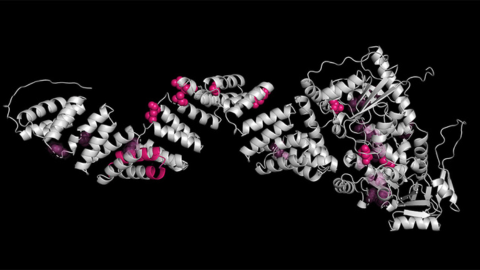Surviving the pandemic as pretenure faculty
In March 2020, I had finished training my research assistants in cell culture technique, and, together, we just had reached the point of being able to gather publication-quality data. Then the pandemic hit. Not even one year into my career as an assistant professor at a primarily undergraduate institution, I shut down my lab, packed my bags and transitioned to teaching remotely. For more than a year, I haven’t stepped into my lab to run an experiment or into a classroom to teach, and neither have my students.

What has been going through my mind in the past year, and what might be going through the minds of your pretenure colleagues? Here is a short list of some anxieties we face:
- I just spent a year learning how to teach online and gaining great skills. Will this make up for my lack of research productivity?
- Will my efforts creating an inclusive online classroom be noticed?
- All my trained researchers just graduated. Will I be able to train new students and publish wet lab data before I apply for tenure?
- At the beginning of the pandemic, someone told me to be creative in adapting my research. Have I done enough remote research over the past 18 months?
- Will the tenure and promotion committee recognize the impact of COVID-19 on my research productivity when I am up for tenure?
Yes, many of us were offered a one-year tenure clock pause. But in many ways, tenure clock pauses don’t equitably address the needs of pretenure faculty, and they only delay our promotion because of something out of our control.
So, how did I survive the pandemic? And how will I continue in the hope of successfully applying for tenure in a few short years?
My colleagues.
Since March 2020, my colleagues at University of Detroit Mercy have been my saving grace. When I have doubts about my progress, tenured faculty in my department remind me of my successes in the classroom and offer opportunities for collaboration. When I want to integrate what is happening in society into the scientific curriculum, faculty and staff at the university form book clubs, and we discuss how to become more anti-racist inside and outside the classroom. When I am struggling, I am invited to join an all-female pretenure group where we commiserate about our challenges and hold one another accountable to goals we set for ourselves. My colleagues, my community, have supported me through this pandemic, and their behavior reinforces why I chose Detroit Mercy as my home.
This year has been trying for us all and especially for pretenure folks facing the unknown. Reach out to us, ask us how we are doing, rally around us and, together, we will get through the rest of the pandemic.
Enjoy reading ASBMB Today?
Become a member to receive the print edition four times a year and the digital edition monthly.
Learn moreFeatured jobs
from the ASBMB career center
Get the latest from ASBMB Today
Enter your email address, and we’ll send you a weekly email with recent articles, interviews and more.
Latest in Careers
Careers highlights or most popular articles

Upcoming opportunities
Friendly reminder: May 12 is the early registration and oral abstract deadline for ASBMB's meeting on O-GlcNAcylation in health and disease.

Sketching, scribbling and scicomm
Graduate student Ari Paiz describes how her love of science and art blend to make her an effective science communicator.

Embrace your neurodivergence and flourish in college
This guide offers practical advice on setting yourself up for success — learn how to leverage campus resources, work with professors and embrace your strengths.

Upcoming opportunities
Apply for the ASBMB Interactive Mentoring Activities for Grantsmanship Enhancement grant writing workshop by April 15.

Quieting the static: Building inclusive STEM classrooms
Christin Monroe, an assistant professor of chemistry at Landmark College, offers practical tips to help educators make their classrooms more accessible to neurodivergent scientists.

Unraveling oncogenesis: What makes cancer tick?
Learn about the ASBMB 2025 symposium on oncogenic hubs: chromatin regulatory and transcriptional complexes in cancer.

